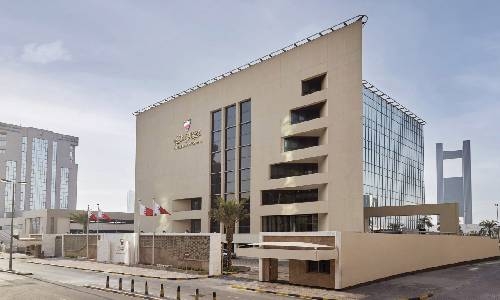Bahrain 'stable' as oil, aluminium prices keep current account robust: Moody
TDT | Manama
The Daily Tribune – www.newsofbahrain.com
Moody’s Investors Service revised Bahrain’s outlook to stable from negative yesterday, citing a rebound in oil prices, reducing debt and borrowing requirements and a relatively diverse economy compared to the rest of the GCC.
The change in outlook “reflects an easing of downside risks to Bahrain’s ratings”. The rating agency also affirmed Bahrain’s B2 longterm and senior unsecured rating, thanks to high income per capita and diverse economy, which it said: “are a source of economic resilience and strengthen Bahrain’s shock absorption capacity.”
The B2 issuer rating also reflects Bahrain’s large, well-capitalized and liquid domestic banking system, which supports a large portion of government liquidity needs through the annual rollover of domestic debt equivalent to nearly 20% of GDP in 2021 (including short-term T-bills).
The stable outlook further highlights the government’s renewed commitment to its medium-term fiscal adjustment programme, which Moody’s says, “increases the likelihood that additional financial assistance from the neighbouring Gulf Cooperation Council (GCC) sovereigns will be forthcoming in a timely manner if and when needed.”
In the longer term, Moody’s said the increased hydrocarbon production from the new very large oil and gas reservoir discovery in the Khaleej Al-Bahrain Basin announced in April 2018 could structurally improve fiscal and external balances.
Moody’s expects the large increases in oil prices since early 2021 to remain elevated for the next few years, improving the outlook for sovereign’s fiscal and external balances, “reducing the rate of government debt accumulation and lowering government liquidity and external vulnerability pressures.”
Moody’s estimates that the government fiscal deficit (including off-budget transactions) narrowed to less than 12% of GDP in 2021 from nearly 18% of GDP in 2020 and will likely decline to less than 4% of GDP, on average.
The projection assumes that oil prices will remain elevated in the next few years, averaging $113/barrel in 2022 and $97/barrel in 2023. Brent crude was down $2, or 1.85% yesterday, at $106.32 a barrel by 1:40 p.m. ET (1740 GMT).
US West Texas Intermediate (WTI) crude declined $2.01, or 1.94%, to $101.80. Brent hit $139 a barrel last month, its highest since 2008. Moody’s projects that Bahrain will maintain its robust current account surpluses during the next two years, mainly due to higher oil prices but also due to an equally significant rebound in prices of aluminium, which accounted for more than 25% of Bahrain’s merchandise exports in 2020.
Moody’s expects that current account surpluses will lead to a further rebuilding of central bank foreign-currency reserves, which rose to $4 billion in January 2022 from the 30-year low of less than $800 million in April 2020.
Related Posts

